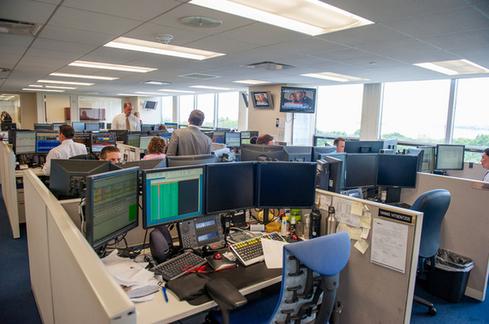11:54 AM
Euro's Future Very Uncertain, Ex-British PM Tells TD Ameritrade Investors
Former British Prime Minister Tony Blair told a conference that the future of the Euro is uncertain and essentially lies in the hands of Germany.
Germany would have to write out a check in order to save the Euro, but the move would almost certainly be highly unpopular with the German people, he noted at the TD Ameritrade meeting held at Essex House in New York City.
“Over this next year, Europe will have to take the fundamental decision on whether it will keep the single currency,” he said.
If any European leader were to give a speech in his place, they would insist that the Euro will survive, Blair told a packed room of investors and analysts. “But there’s a misalignment between what the European Union people think and what the political elite think,” he argued.
For the Euro to survive, Germany would have to support other European countries by paying with a cash transfer, he said, noting that this would require a huge commitment on the part of Germany.
The only way Germany could agree to do this is if EU countries have long-term credit plans in place. As such, Europe must commit to structural reforms, he underlined.
But Blair noted that it will be a huge political challenge for Europe to bring about the required structural reforms.
“Countries have to reduce their deficit but they can’t grow their economy so they have to make further cuts while promoting growth,” he said. “I see a conflict between the best short-term politics and the best long-term policy.”
“Ultimately, it’s a clash between the politics and the arithmetic,” he said. “And my experience in office tells me however powerful we think we are, the arithmetic wins. I hope for the sake of the single currency I’m wrong.”
[see video below – story continues below}
Underlining the difficulties inherent in promoting structural reform in Europe, Blair noted that the French elections, which earlier this week saw Socialist politician Francois Hollande come to power, demonstrates not just a backlash against outgoing president Nicolas Sarkozy, but also a strong desire from France not to change the basic EU model that has existed since World War II.
Blair, who was in power between 1997 and 2007, noted that the global financial crisis has accelerated the need for reform in the U.S as well as in Europe. “Business has to be a partner to get out of the financial crisis,” he said.
While speaking about the politics and economics of various countries, he pointed out that the business potential of certain areas of the world remain largely untapped.
In particular, the African continent could offer multiple opportunities to investors in the next 10 to 20 years, said the former British prime minister, who since leaving office has launched a foundation to promote understanding between the major religions and also represents the U.S, UN, Russia and the European Union in working with the Palestinians to prepare for statehood as part of the international community’s effort to secure peace.
In a light aside, Blair, a long time Rolling Stones fan, said that one of the highlights of his career was when shortly after the Maastricht Treaty was signed in 1992, which lead to the creation of the Euro, he had dinner with Rolling Stones front man Mick Jagger. “I was all ready to ask Mick Jagger about [the song] ‘Brown Sugar’. But all he wanted to do was talk about the Maastricht Treaty. He really wanted to talk about politics,” he quipped.
Meanwhile, earlier at the conference, the U.S. economy and politics took center stage.
S & P Capital IQ advisors told investors that the U.S. economic momentum is currently slowing while European sovereign stress is rising and BRIC growth is decelerating.
While November’s elections are unlikely to greatly affect the markets, they could take a hit if President Obama were to win a second term but the Republicans win control of Congress, Beth Ann Bovino, U.S. chief economist, Standard & Poor’s said.
Overall, analysts were relatively upbeat about the outlook for U.S. markets, particularly in comparison with other markets worldwide.
Alec Young, global equity strategist, S & P Capital IQ noted that the U.S. has the highest liquidity in the market and corporate dividends are expected to grow 18% this year.
Melanie Rodier has worked as a print and broadcast journalist for over 10 years, covering business and finance, general news, and film trade news. Prior to joining Wall Street & Technology in April 2007, Melanie lived in Paris, where she worked for the International Herald ... View Full Bio
























